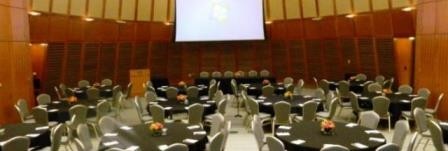<Editor’s note: This series of eleven posts were written by Atipong Pathanasethpong, MD, MSc during the Harvard Macy Program for Educators in Health Professions January 2016 session. A member of the Faculty of Medicine at Khon Kaen University, Thailand and a student in the Harvard Medical School Masters of Science in Medical Education program, Dr. Pathanesethpong began blogging daily as a way to reflect on his experience in the course.
The process of writing is itself a learning opportunity - a special time to reorganize our ideas about the world and a chance to discover inner wisdoms that we might not be aware we already have.
Different types of information come to us at different times, in many forms, and in varying levels of maturity. Sometimes it is hard for us to weed out great ideas from the rest. Writing provides us with a unique state of mind in which we are able to distill our thoughts and organize them.
To write is to grow.
Day 1 – So I’m a Faculty?

Things sure look different when you change where you sit, figuratively and literally. Last year, I used to sit on a chair just a few feet in front of me, but just a few feet can make a world of difference.
As a fresh Macy scholar from the class of 2015, I can't help but admit that I am a little bit intimidated by where I'm sitting. "Faculty Table," the sign says. That's supposed to refer to someone with intensive and extensive experiences, right?
As a non-native speaker, I can't help but wonder that the word faculty might be used in English differently from the way it is used back home in Thailand. Over there the title doesn't come easy - one needs to clearly prove that they are way ahead of the pack and that they have a wealth of knowledge to give to other people to earn that title, which I don't think I have had, at least not yet. The reason I am being called a faculty is simply because I have already taken this course before - is that a good reason for me to have that title?
But then I think back to my experience from last year and I wonder who were actually doing the teaching and who were doing the learning. It turns out that everyone was doing both at the same time and the processes were mostly non-hierarchical. There were no strict teachers who only taught and there were no strict learners who only learn. We kind of did both at the same time.
The key as to how this seemingly paradoxical harmony could happen was, in my view, the magic mixture of diversities and commonalities in the group. We all came to the course because of similar goals, but we all carried with ourselves some unique experiences, perspectives and knowledge and everyone else could learn from. For example, I had the chance to learn about the aspects of American healthcare system that could be useful for my country, and I had a chance to share how my country managed to keep higher education dirt cheap and provide health coverage to every citizen despite the diminutive GDP.
Diversity in perspective and worldview can be very threatening to those who wish to close up and remain in their comfort zones. But diversity is invaluable to people who are willing to open up and learn new ways that could help them reach their goals. That is key to why we are both teachers and learners at the same time: we are always both sharing and receiving.
So the sign on the table is not going anywhere, and I will always have the title of faculty throughout the Macy experience. But I am looking to share whenever I can and to learn at every possible opportunity. Looking forward to hearing some insights from you all soon.
Day 2 – Dilemma of the Second Day

Ah, the second day. There is nothing like the "Dilemma of the Second Day".
The first day of the course is pretty straightforward. You come in basically knowing no one, so you pick a seat that seems comfy (and probably doesn't attract too much attention), then you get to know people who sit around you and enjoy learning with them and from them.
But the second day is more complicated. You come into the room, you see those who you sat with yesterday, and you start asking yourself, "Should I sit with them or should I move to sit somewhere else?" You might also think "I'm here to connect with as many people as I can. So do I move somewhere else so I can meet more people, or should I stick to the same group to know them better?" And a few of you might think "I think I could find a more enjoyable company than yesterday, but would they feel hurt if I don't sit with them?"
That's the Dilemma of the Second Day. It actually happens on every subsequent day, but it first hits you on the second day. I'm sure the phenomenon itself is nothing new, but I took the liberty of coining the name for it anyway.
My personal advice, based on my experience from last year, is to try to sit with different people every day. After all, there are no strangers in Macy courses - only friends you haven't yet met.
I know that this phrase can sound very cheesy and is also highly disputable, but for Macy I have to agree with William Butler Yeats. One day during the Macy course of last year, a traffic accident caused me to arrive late and I simply could not go to sit with my friends without causing too much distraction to the class. So I begrudgingly slipped into the empty seat that was closest to the door, firmly placing myself between two strangers that I had thought I had no business conversing with.
You know what, we have become good friends. And now, one year after we first met, we still keep in touch, with plans to get together soon.
There is nothing wrong with sticking to the same group, of course. But I you have the chance, I strongly encourage you to move around - at least just for fun, if nothing else.
Day 3 – Lions Push Their Young Off of Cliffs

In Thailand we have this idiom "Lions push their young off of cliffs," which basically means that difficulties help promote growth. It's pretty odd how this idiom came to be considering that we only have tigers, not to mention that most wild lions in Africa live in relatively flat areas with no cliffs.
However, that idiom perfectly captured my initial idea of "Step-Back Consultation." My project was my dear baby that I had been raising up with love and care and the thought of putting it out there for people to pick apart while I could only watch in silence horrified me. As much as I believed that difficulties truly promote growth, I still feared that my baby cub was going to die alone at the bottom of the cliff and get eaten by vultures. I'm sure I wasn't the only one to feel this way.
But the real experience was something totally different. Instead of pushing the baby down a cliff, it was actually more like taking the baby to visit the grandparents. Many of you probably know what that is like: they never like the way you have raised the baby; they are capable of criticizing pretty much every decision you have made; you initially cannot comprehend how their ideas could ever be useful - but at the end of the day they mean well for the baby and you will eventually be able to grasp some things that you can incorporate into your child-rearing. The "We" instead of "He/She" switcheroo pf the Step-Back process was really key in making this happen.
Over time, I slowly shifted from feeling horrified to feeling joy whenever I got to do a stepback. Sometimes I even signaled my fellow group members to be more critical of my project. Sometimes I sat with a smile on my face while my project was being chopped to pieces - ordinary people might have thought I had completely gone mental. But I am certain that those who have already done it can testify to the same experience. And for those who have yet to be in that situation, I have two words for you: enjoy it.
Day 4 – What Is the Price of a Meal Actually for?

The last session of the morning just concluded and I began to pack my stuff and got ready to leave the Rotunda.
"Hey Atipong, let's go grab lunch." A voice came from behind me.
I turned around and saw that a few of my Macy 2015 comrades were beginning to form a group. I glanced back into my backpack where a couple of tortilla wraps that I had just made that morning were lying, - they were supposed to be my lunch.
"Where are you guys going?"
"We're going to Fenway. There is a strip over there with several places to choose from."
I glanced back at my tortillas again.
--------------------------------
Boston is such an expensive city to live in. Crazy expensive. While not at the level of Manhattan, Geneva, or Hong Kong, it is still quite expensive to live a comfortable life here compared to Thailand.
Being enrolled in the Masters in Medical Education at HMS means that I have to stay in this pricey city for two years. And as someone who is on government scholarship from a developing country, I don't have many choices but to cut expenses left and right lest I find myself dipping into my own personal savings - an immediately gratifying choice that could easily lead to some long-term financial stunts.
--------------------------------
Those tortillas cost me about $2.50 to make, while a meal at a restaurant could easily cost me four or five times as much. It wasn't actually that much more by US standards - maybe just $10 extra - but back at home $10 would easily get me five meals.
"Dude, we wanna be back on time. You coming?"
At that point I realized what the decision was actually about, and the decision became easy: I wasn't going to pay extra for food, I was going to pay extra for the chance to hang out and personally connect with some really amazing people that I truly enjoyed being with. There was no way I was going to miss that. I picked up my backpack.
"Of course. Let's go."
Day 5 – Keeping People Connected

Alarm on my phone goes off in the distance. I put the spatula down, walk to my room, and pick up the phone. The screen flashes 20:55 - It's almost time. I sit down at my desk, turn my laptop on, and allow my mind to wander as the computer boots.
Another alarm goes off and snaps me back to the reality, this time at 20:58. The laptop has already finished booting and so I open Google Chrome, my begrudgingly "favorite" browser. I log on to twitter.com and type in the following tweet.
"Good evening everyone, Atipong here. Welcome to the first Harvard Macy twitter chat. #hmichat"
After the Harvard Macy 2015 January session, when my last project group meeting had just concluded, everyone began to pack their stuff and get up. We the scholars had one more day to go, but we were aware that some of the facilitators would have to leave that evening and would not be able to stay for the last day. We said it in many different variations, but "Keep in touch" was basically what everyone of us said to each other. Email seemed to be the best way - doing 6-way email shouldn't be that hard.
Then we proceeded to have the closing dinner, and I looked at all the people in the room and tried to think of a way that would keep everyone in the course connected. Emailing could be a way to do it, though it clearly would be limited to one-way communication most of the time. If only there was something that could allow real-time communication without bogging down the process.
And then it struck me - Twitter!
The morning after, I asked Liz for a chance to announce it, and she did not hesitate to comply. Despite the short notice, I was still lucky enough to find two other co-hosts - @lisanashdo & @nancyeadams.
"Thanks everyone, good night #hmichat" The last tweet appears on the live feed. I close my laptop, all fired up to get back to work on my project after getting all the encouraging words from my fellow Macy scholars. That’s when I make promise to myself, "I'm going to return next year as faculty and push for twitter chat to happen at Macy 2016 so everyone can be a part of this awesome experience."
Day 6 – Macylag

I am sure everyone knows what jetlag is, but do you also know that there is such thing as Macylag?
I know that today is Friday, but I right now my body is screaming to me that it should be Saturday instead of Friday and that I should be sitting on my couch scrolling through Netflix instead of sitting in the Rotunda spending my mental energy trying to grapple with all these theories. But such is life for Macy folks who have to start the course on Sunday - one day earlier than the usual schedule.
Similar to how your body could feel like it should be a different time of the day when you have jetlag, your body could also feel like it should be a different day of the week when you have Macylag. So, as a returning Scholar, this is the second time that I have experienced it. I still remember how much I loathed the decision last year when my peaceful Sunday was taken away from me, but I think I have come around to see the good sides of it.
First of all, the peace and quiet really help set up a good start. I like how we pretty much have the whole center to ourselves on the first day - hecticness is not so useful when 100+ strangers are trying to find their way to the event, situate themselves, and get to know each other.
The second reason, which I suspect might be one of the real reasons why we have to start on Sunday, is about the strict ID check. You must have noticed the security guards with watchful eyes vigilantly looking at you as you come in through the door. They are required to check the ID of everyone that comes into any HMS building. If you are not aware of this by now then I'll tell you: they really mean business. So my guess is starting on Sunday can help them know that the 100+ non-ID'd people are in Macy program. Otherwise Todd would have to be at the door giving clearance to every one of us. So we are having Macylag for a good reason.
Anyhow, just like how we can adjust to jetlag, we can adjust to Macylag as well, especially when Sunday rolls around and we all get a day off as per usual.
Day 7 – Demons in Our Minds

Ah, the lovely Saturday. I remember how much I wanted to stay in bed the last time around since I was so exhausted. One of my fellow Macy 2015 scholar described the Macy experience as "Drinking from a firehose, and you are not allowed to stop", which I think was very apt. Even though I knew full well that brain had no pain receptors, I still felt like my brain hurt from all the information that I had to take in. But if I had stayed in bed I would have lost the chance to participate in the amazing session of Bob Kegan.
I think we all know that we have "Demons in Our Minds:" the beliefs, assumptions and worldviews that are counterproductive, unrealistic, or maybe even downright ugly. Some of the times we aren't aware of them. Other times we may be aware of them, but they seem too evil or too ludicrous for us to ever admit that we have them. Bob's session does a good job of shedding light on them and helping us accept them. But personally I think the most important parts of the session are probably how it liberates us from our own inner demons and helps us get rid of them.
About a year ago (not during Macy) I had a horrifying realization about two of my inner demons: I realized that I was more misogynistic and more xenophobic that I had thought. It came to me because I was thinking about how my kids would grow up and eventually have their own families. At one point I realized that I would be ok with my son getting married to someone who is not from Chinese descent, but I would not be so thrilled about my daughter doing so. Why was that?
I then proceeded to have some deep personal conversations with my inner self to seek out the reasons. And I believe the reasons were twofold. First, I must have had the belief that people from Chinese descent were inherently better than others. Second, I must have had the belief of male dominance, and thus it would be fine if my son was to marry a foreigner, since she would be under his control.
These thoughts are nothing short of terrible and shameful. But Bob's theory says that these were not deliberate products from my mind (i.e. I did not intentionally choose to be misogynistic or xenophobic); rather, they had been produced by various factors and experiences throughout my life, many of which I had had no control over. I also did not "have" those thoughts; instead, they "had" me. And probably most important, it was now possible for me to find solutions. Bob was not kidding when he said that bringing these assumptions out in the open would be a good thing because only then would we be able to come up with ways to fix them.
And fix them I did. I had to go through a few weeks of emotional turmoil while I tried to reconcile conflicting thoughts and move myself from the person that I was to the person that I wanted to be. I had to experience a mix feeling of guilt, shame, fright, frustration and desperation in the process, but eventually I managed to resolve the conflicts and move past them. If someone comes up to me today and ask me who my kids can marry, I will say with 100% certainty that they can marry whomever they choose with my full support. While it's possible that I still have some remnants of misogyny and xenophobia in me, the difference is that I am now ready to face them and deal with them.
So to those of you who might think that your hidden assumptions are too absurd or too horrible to admit, keep your chins up. I see the process of admitting that you have them and then fixing them as akin to stepping up to face the bullies at school and telling them to their faces that you will no longer submit to them - which is an act of bravery and responsibility rather than an act of weakness or humiliation.
Day 8 – Is There Ever a Day off in Macy?

Finally, a day off!
But is it, really?
After a full week of a demanding, mind-numbing course, I'm sure everybody thinks that they deserve a good time off, that they should get to have the whole day to themselves and not have to work at all. And that's exactly what I thought to myself last year - I would watch my favorite series the whole day. But let us not forget that we still have three more days to go and there are still plenty of articles and preparations to go through. So what do you do? Rest? Work? How much of each?
The "Macy Sunday off" last year made me think how often my trainees must find themselves in the same situation as I was in, except they might not even have the choice of a day off because I had forced them to either work or study on those days. I might not have done so explicitly, but by showing up on Monday morning and demanding extensive background knowledge about the first case I had established a hidden curriculum. My hidden curriculum was that they should have worked their tails off during the weekend no matter how hard they had worked in the week before or how many shifts they had taken.
One possible interpretation of this contradictory behavior would be that I was a hypocrite, and I think that is not an unreasonable way to look at it. But a more fruitful interpretation would be that it showed me how easy it was for anybody to be totally oblivious about the contexts and intricacies in other people's lives. I was blind to the things that had been going on in my trainees' lives as it had not crossed my mind to cut them some slack.
Maybe that made me a terrible teacher, maybe it did not - there are good arguments to be made about pushing other people's learning experiences past their normal limits. But one thing that it certainly did was make me more considerate and more thoughtful about my learners' lives.
So I'd like to invite you all to ponder a little bit about what you will do today. Start by asking yourself what you would request from a trainee who is in the same situation as you are, and then proceed from there.
Day 9 – Limitations of Our Own Eyes

I was sitting on the floor, phone in hand, watching my recorded self. Who's that silly guy in the video? The person in the video was trying to teach something to the group. He seemed jumpy, he stuttered at times, and the pace of his teaching was erratic. He got all the important points across, but I wasn't so sure he was doing that effectively and comprehensibly.
"Time's up. Come on in!" I was called by a fellow group member.
I got back into the room and prepared myself to hear my peers talk about all these points that I had noticed. Yeah, yeah. I know what I did wrong. The feedback process started with my reviewing what I did, so I began talking about the things I had noticed from watching the video.
"Well, it seems I was a little bit jumpy. I stuttered at times. And the pace of my teaching was quite erratic, I think."
They looked at each other as if to find something that wasn't there.
"Nope. I don't think you were jumpy at all." One of them said.
"Oh."
"I also don't think that you were really stuttering."
"No?"
Another member chimed in. "Umm, I don't know. Maybe just a little? It didn't really bother me though."
"Alright. And wasn't the pace of my teaching erratic?"
They looked at each other again. "I'm not sure. Was it? I mean, even if that was the case, I didn't really feel it." The rest just nodded in agreement.
They then proceeded to discuss the points that they thought were important, none of which had anything to do with the way I saw myself. I took notes and asked for clarifications. At the end of the session, the flaws I noticed about myself were almost completely forgotten - they simply did not matter anymore.
This is exactly the reason why microteaching is such a great learning opportunity and how it hits home the realization that we might not be as good at evaluating ourselves "as if looking from an outsider's point of view" as we once thought. We can rarely see ourselves the way the others see us, even when we are given a tool to do so (such as video in this case).
And just like how there are "known unknowns" and "unknown unknowns", there are "known mistakes" and "unknown mistakes", and we are helpless in realizing the latter. Those can only be seen by someone else other than ourselves.
I know that this has been said over and over in this course, almost to the point of becoming a cliché, but learning and growing are never a solo journey. Companions are vital, help is essential, and mutual respect is the basic building block of the whole thing. I can only wish that every one of you have found these crucial ingredients for long-term, sustainable growth during the span of this course.
Day 10 – An Inconvenient Fact

I have had some opportunities to talk to some of you (the scholars) about what you thought about the course a
Just like how changes happen every day in other fields, changes also happen every day in healthcare education. And just like how we can expect a significant portion of technologies and knowledge in our respective fields to be obsolete in a few years, we would be naïve to not expect that the same thing will happen to what we have learned in Harvard Macy.
With that said, we should also not forget that many things in Harvard Macy are evergreen - that is, they are going to stay relevant for a long, long time. I believe that one of the crucial skills to have is to be able to distinguish if a piece of knowledge is evergreen or transitory. We should then learn to hang on to those that are evergreen so we can revisit them as often as necessary and also learn to capitalize on those that are transitory while they are still relevant, but never get too attached to let go once they are not.
I don't think I am qualified to tell you which Macy concepts are evergreen and which are not. And frankly, I don't think there is a single correct answer for everyone. What stays evergreen, what has become obsolete, and what is still relevant - these are all dependent on your individual context. So be mindful of your own local contexts while being aware of recent development in the literature, and I trust that every one of you will be able to find their own way.
Day 11 – Bittersweetness

There is a Japanese comic series that I have at home. The story is about an elementary school boy who is deeply interested in space and his dream is to become an astronaut and go to Mars. The series follows his amazing and exciting life from elementary school through adulthood in a journey that consists of countless twists and turns. Suffice to say it is one of the most endearing parts of my collection.
About a few years ago I had to move several times in short succession. The moves were so close to each other some boxes were never opened until I settled down for good. When I opened the comic book box, volume 5 of the series was nowhere to be found and I had no idea where it could be. I was crestfallen. In fact, I probably felt way worse than before I had had any of them.
The reaction seems natural, but Spock would probably say "Your reaction is illogical. You used to have 12 volumes. Now that you have lost one, you should be 11/12 as happy as you were before." Unfortunately, Spock is a Vulcan and I am an Earthling, and thus our minds don’t tend to work the same way. Once it has formed an attachment to something, the human mind can take a big hit if that thing is lost, just like how I was badly dismayed when I lost the "completeness" of my collection.
After 10 days of enlightening experience and gripping comradery at Macy 2015, I had a similar feeling on the last day when I realized that all of these would be gone. I shunned the thought that I was going to wake up the day after and would no longer get to see my Macy peers. And I was right, the day after I felt an odd feeling of emptiness when I woke up alone in my room. No more mind meld, no more seeing those rare breed who operated on the same wavelength, no more eye-opening learning experience - just myself in the same old room with my same old routine. I imagine it is going to be similar for many of you.
But human mind has a built-in mechanism to deal with a situation like this: we can personally relive the experience at any time. Objects and events may come and go, but memories stick with us forever. Most of the time we don't have to do much more than close our eyes, and the sweet memories of our Macy journey will be right there for us to cherish again.
The first day when we first realized there were so many like-minded peers in the world.
That day when we were dead scared of step-back consultation.
The hard work of waking up early every morning to attend the sessions and going to bed late every night to prepare for the next day.
The countless joyful conversations that we have had.
The last day where everybody reluctantly said goodbye.
Until we meet again in May.
Cheers,
Atipong
Atipong Pathanasethpong, MD, MS


